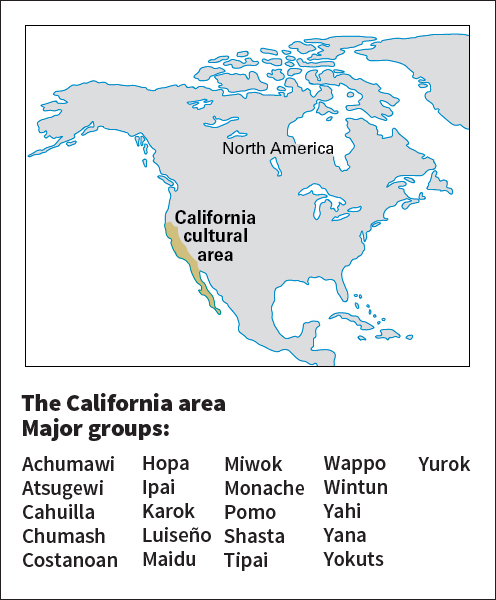Yurok, << yoo ROK, >> are a Native American people who originally lived in northern California, along the Klamath River and the Pacific coast. Most Yurok still live there.

The chief foods of the Yurok were acorns, which they ground into meal and boiled, and salmon. The Yurok also ate deer and other game, bulbs, seeds, and berries. Food from the ocean included not only fish and shellfish, but also seaweed and such animals as sea lions and whales.
The Yurok paid great attention to wealth and social position, which were inherited. Valuable possessions included white deerskins, obsidian blades, headdresses made of woodpecker scalps, and strings of dentalia (tooth) shells. The dentalia strings were used as money, with the value determined by the length of the shells.
The gold rush that began in 1849 brought many white settlers to California. Many Yurok died in fighting with the settlers. In the 1850’s and 1860’s, the United States government forced the Yurok to move to the Hoopa Valley near McKinleyville, California. In 1876, the area was formally established as the Hoopa Valley Reservation. The traditional Yurok homeland along the Klamath River was added to the reservation in 1891. Almost 100 years later, in 1988, the Klamath River area became the separate Yurok Reservation. According to the 2020 U.S. census, about 4,600 Yurok live in the United States. Today, many Yurok work in logging, fishing, or farming.
